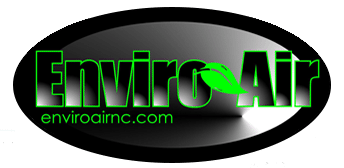Tweak your HVAC for the best nights sleep
- By Ryan Profitt
- •
- 27 Nov, 2017
- •
HVAC Services
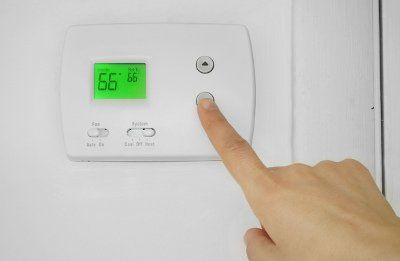
Consider experimenting with your thermostat, fans, humidifiers and dehumidifiers to see what works best for you and leaves you feeling refreshed in the morning.
Be Cool
When you prepare to fall asleep, your body temperature naturally drops to help make you relaxed. And when your bedroom is cool as well, you’ll get even more benefit from this process. According to the National Sleep Foundation, the ideal bedroom temperature for optimal sleep is between 60 and 67 degrees Fahrenheit.
Maintaining that temperature during the winter is easy and can even save you money on heating costs, but it won’t be cheap to get the temperature down that low using air conditioning. So to help keep cool on hot summer nights, you may need to rely more on fans.
One alternative is to look into zone-control air conditioning systems, which allow you to set different temperatures in individual rooms. If you can dial down the temperature in just your bedroom without cooling the entire house, you can get a cooler night’s sleep for a fraction of the energy cost.
It’s the Humidity
When the humidity in your bedroom is too high, the air can feel thick and muggy, which can make it harder to breathe and relax. Humid rooms can also attract some pesky insects and even promote mold growth, which can irritate your respiratory system and subsequently affect your sleep.
On the other hand, a room that’s too dry can make your throat and nasal passages cracked and scratchy, which isn’t a recipe for a good night’s sleep either. So it’s important to get the humidity level just right.
Using an inexpensive digital hygrometer, you can measure the humidity level in your bedroom. You’re looking for something near or between 40 to 50 percent. If you’re way off, use a small, standalone humidifier or dehumidifier to push that number toward the sweet sleep spot.
Feel the Breeze
Fans offer a variety of benefits for your bedtime routine. The downdraft from a ceiling fan can create a cooling effect on your skin all night long, keeping you comfortable and closer to that ideal temperature range. It will also circulate the air to keep it fresh, which may make it easier to breathe.
Another fringe benefit is the steady hum of white noise most fans create. This effect can be so soothing that you might even want to use a comparatively noisy box fan if your ceiling fan is too quiet. White noise can not only help you fall asleep, it can help you stay asleep by muffling middle-of-the-night noises that might otherwise wake you up.
Do you want to learn more about how zone cooling, fans and humidity controls can make your home more comfortable for a restful night’s sleep? Contact us to find out more.

There are many components that make your HVAC equipment work. One of these components is your refrigeration system. Refrigerant facilitates the transfer of heat either to or from air that is distributed throughout your home. Refrigerant removes heat from the air as it evaporates and adds heat to the air when it condenses. Evaporation and condensation occurs in coils of the same name – the indoor, evaporator coil and the outdoor, condenser coil. In different portions of the cooling cycle (or heating for heat pumps), your refrigerant is either a liquid of a gas.
A few years back, the HVAC industry had to switch from R-22 refrigerant (Freon) to R-410A. R-410A does not contain chlorofluorocarbons (a.k.a. CFCs). This means that it does not contribute to ozone depletion were it to escape into the air. Other refrigerants, like R-22, do contribute to ozone depletion.
If your heat pump isn’t heating or cooling correctly, there could be an issue with your refrigerant system. Make sure you always call a professional for HVAC system maintenance. You don’t want to attempt to repair your refrigerant system unless you know what you’re doing. Not only is refrigerant expensive, you could damage one of the other crucial components of your system (like your compressor or coil) leaving you with a much bigger repair bill and a longer time without heating or cooling. We would love to inspect your HVAC Unit. Please call us at 855-420-COOL.
Source URL: https://enviroairnc.com/do-you-know-what-the-refrigerant-in-your-hvac-system-does/
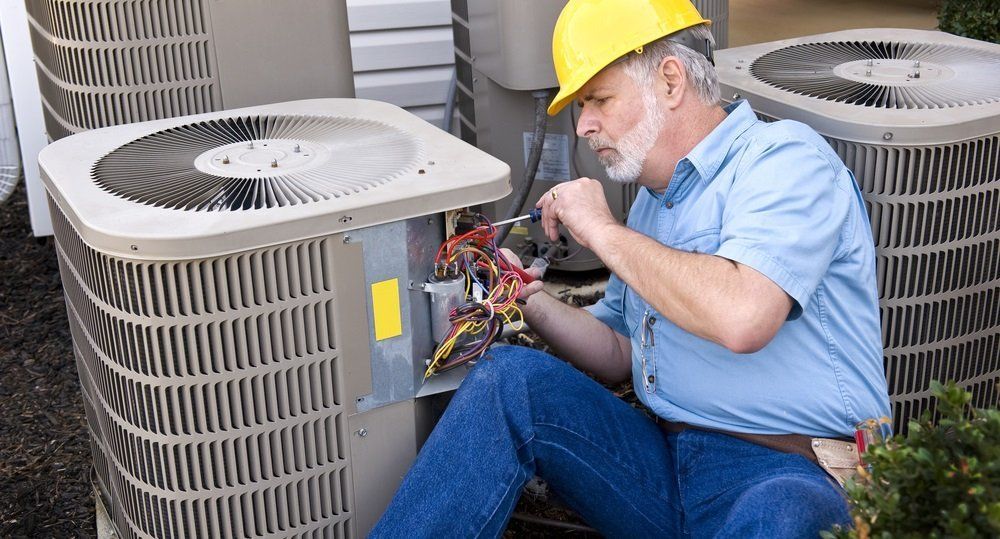
You always want your compressor to do well. It’s the heart and soul of your heating, ventilation and air conditioning system. Also, it’s the most costly piece to replace or repair.
But when the compressor quits doing its job at peak efficiency, you can expect the trouble usually will be rooted in one of these areas:
- Oil problems – Oil can contaminate the compressor if you have an oil leak, the oil pump fails, or oil gets trapped in a suction line. This leads to a lack of lubrication and an increase in friction.
- Refrigerant problems — Bad settings or too much refrigerant are a couple reasons why the liquid refrigerant stops vaporizing fully in the evaporator and starts putting too much pressure on the compressor.
- Electrical problems — The compressor can overheat and fail if there are imbalances in the current or the voltage.
- Dirt or other intruders – A system can be contaminated by dirt, air, moisture or acids created by heat and pressure.
- Overheating – A lack of cooling or an intrusion of air or non-condensable gases into the system can cause the compressor to overheat.
Two suggestions
One way to avoid these problems is to have Enviro Air
conduct a periodic check. Our routine maintenance program often uncovers and corrects small problems before they become big, expensive-to-fix problems.
If your compressor already is doing badly, contact us at 855-420-COOL and we will gladly review your system and give you all the information you need to decide whether you should replace or repair the compressor.
A properly maintained HVAC system should function 15 years or more, but the life depends on such factors as sizing, daily run-time, maintenance and the history of repairs.
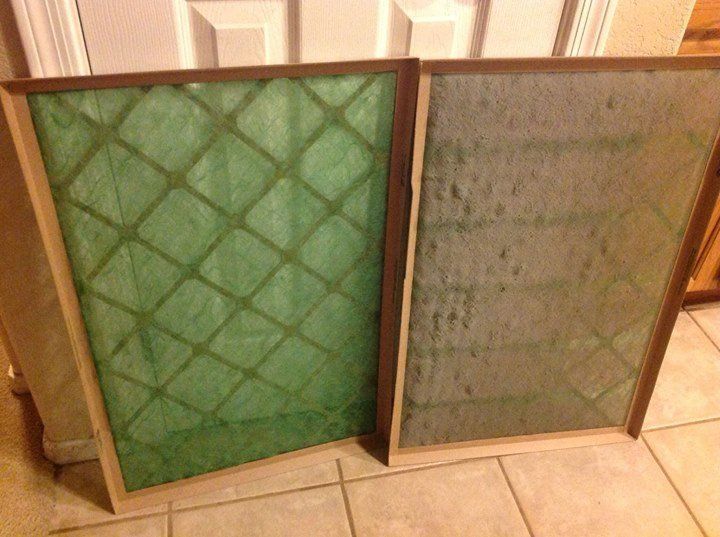
We have one to add to your list: Keep your AC in good shape.
It’s a worthy goal because when your air conditioner is working well, you have lower energy bills and higher comfort levels.
In this article, we’ll cover the following tips you should keep in mind for 2018:
1. Check your air filter regularly
2. Mind your outdoor unit
3. Get your ductwork sealed
4. Don’t ignore needed repairs
5. Schedule AC maintenance in the spring
Tip #1: Check your air filter regularly
Probably the easiest (and most important) thing you can do to keep your AC in good shape is to change your filters regularly.
Why is changing your air filter so important?
Changing your air filters regularly prevents dirt from building up and creating a barrier that restricts airflow to your AC. If your AC has reduced airflow, it can cause major problems like…
1. Less cool air coming from your vents: A dirty filter is basically a thick wall of dust that blocks air from entering your AC system. And less air into your AC system means less cold air that it can blow out into your home.
1. Frozen evaporator coil: Limited airflow into your AC system causes the cold refrigerant to drop in temperature until your evaporator coils freeze, which also limits the amount of cold air that comes out of your vents.
So, if your air filter ever looks dirty like the picture below, it’s DEFINITELY time to change it. But don’t wait until it’s clogged to take action. In fact, our suggestion is to check your air filter every 1-2 months and change it out even if there’s only a thin layer of dirt on it.
Tip #2: Mind your outdoor unit
You’ll want to keep your outdoor unit free of debris and uncovered to keep your AC running efficiently.
Here’s why: Your outdoor unit (also called the condenser) is responsible for taking all the heat from your home’s air and dumping it outside.
But if your outdoor unit is dirty or covered by plants or outdoor furniture, all that heat can’t escape as fast, which means your system will run longer to cool your home. And if your AC system runs longer, you’ll have higher energy bills.
Tip #3: Get your ductwork sealed
Your home most likely has duct leakage, which means wasted money. That’s because leaky ductwork makes your AC work harder than it has to.
What you should do: Contact a professional to seal your ducts. Duct sealing involves…
• Using mastic sealant or metal tape to cover holes and leaks
• Adding insulation around the ducts
• Refitting and sealing any poorly connected ducts
When your ducts are sealed and don’t have any leaks, it will make your AC more energy efficient and your home more comfortable
Tip #4: Don’t ignore needed repairs
Though it’s tempting to ignore signs that your AC needs repair, not taking any action actually costs you more in the long run.
So if you smell something funny coming out of your vents, or hear strange sounds, don’t wait to call a professional to check out your system—even if you’re still getting cold air.
Even if the problem seems miniscule- don’t wait. Small problems that go unfixed could lead to bigger ones, which will cost you more $$ and could lead to an early breakdown. And the LAST thing you want in the middle of summer is to be completely without cool air!
Tip #5: Schedule AC maintenance at least once per year
Annual HVAC maintenance is essential to keep your air conditioner in tip-top shape.
Think of it like changing your car’s oil. When you change your car’s oil regularly, your car gets better gas mileage and performs better. It’s the same with your AC. Maintenance increases your AC’s efficiency, which lowers your energy bills and prevents early breakdowns.
We recommend you get an AC tune-up in the spring, right before cooling season comes into full swing. We offer preventative maintenance plans which consist of two visits per year, Spring and Fall. Call Enviro Air for more information on our plans at 855-420-COOL.
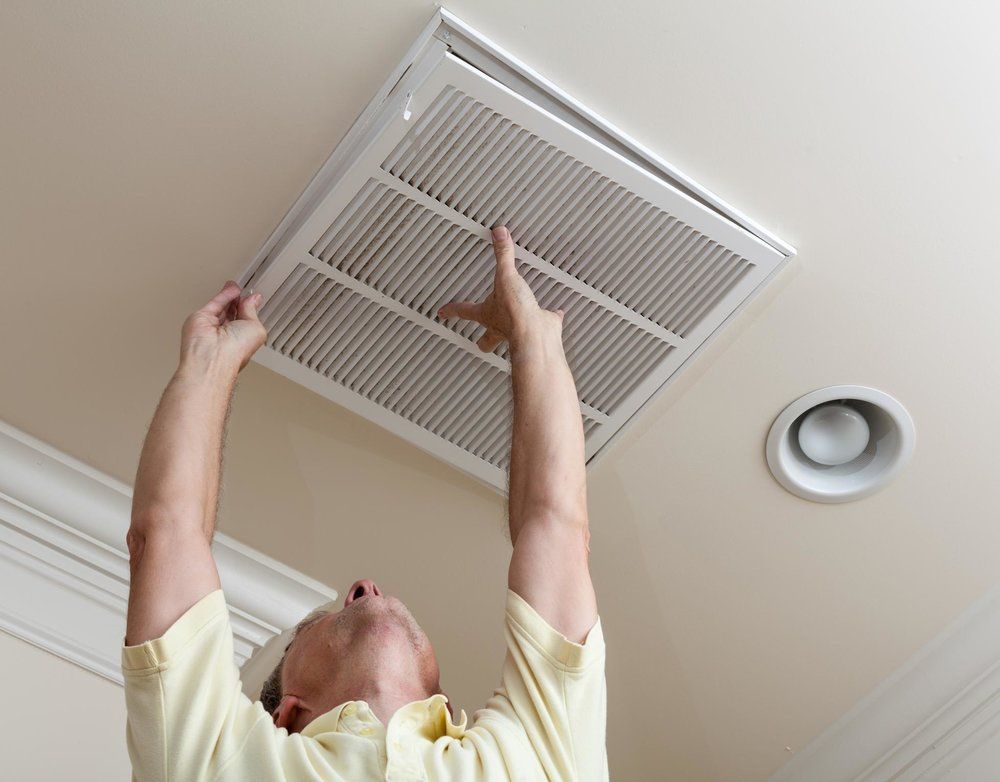
1. Buy a better filter if you haven’t already. The new high-efficiency pleated filters have an electrostatic charge that works like a magnet to grab the tiniest particles — even those that carry bacteria.
2. Replace the filter at least every 90 days. But check it monthly. If it looks dark and clogged, go ahead and change it. If you have pets, you’ll probably need to change every month.
3. Make sure there’s at least two feet of clearance around outdoor air conditioning units and heat pumps.
4. Remove debris, such as leaves, pollen, and twigs weekly during spring, summer, and fall from top and sides of outdoor air-conditioning units and heat pumps. Don’t allow the lawn mower to discharge grass clippings onto the unit.
5. Monthly, inspect insulation on refrigerant lines leading into house. Replace if missing or damaged.
6. Make sure unit is level. Annually, ensure that outdoor air-conditioning units and heat pumps are on firm and level ground or pads.
7. Stave off clogs. Annually, pour a cup of bleach mixed with water down the air-conditioner condensate drain to prevent buildup of mold and algae, which can cause a clog.
8. Shut off the water supply to the furnace humidifier in summer. In fall (or when you anticipate turning on the heat), replace the humidifier wick filter, set the humidistat to between 35% and 40% relative humidity, and turn on the water supply.
9. Never close more than 20% of a home’s registers to avoid placing unnecessary strain on the HVAC system.
10. Replace the battery in your home’s carbon monoxide detector annually.For more details visit us at https://enviroairnc.com

Don’t let air conditioning failure happen to you this summer! How do you prevent this? Have your local heat and air conditioning company perform this maintenance on your HVAC unit every spring to ensure its running at its best to face the summer heat:
Change your filter monthly, write the date on each filter to remind you when to change it- monthly HVAC filter maintenance is key! Dust and dirt build up can cause blockages in your HVAC system. As a result, reducing its efficiency, cooling ability, and increasing money spent on your power bill. Also those allergens can break off and go into your home’s air, it’s what you’d be breathing! Most notably, decreased indoor air quality can contribute to allergy issues and sickness
Maintenance and clean the indoor/outdoor coils, pans, traps, and lines- if these are plugged it can cause water damage to your home and reduce your HVAC system’s cooling ability. Meaning less efficient air conditioning. Furthermore, your system will run longer, affect your indoor humidity levels, raise your energy costs, and reduce the life of your equipment
Landscape maintenance- Few people realize wind, rain, and yardwork can lodge sticks, leaves, grass, mulch, and other common items into your outdoor HVAC system. Therefore, routinely clean and maintenance your outdoor system by removing any debris immediately. It’s also common for debris to bend and dent fins, which decreases air flow and the HVAC systems cooling ability. You can correct this easily with a fin comb. Completing this HVAC maintenace will increase airflow in your system, get greater efficiency, less money spent on energy bills, and greater comfort in your home
Test and inspect all electrical parts and wiring- faulty parts can lead to house fires. Also system failure, less efficiency and comfort, and higher energy bills
Maintenance, inspect, clean, and adjust pumps, motors, belts, and blowers. Lubricate as required- excessive friction and misaligned parts can lead to increased damage and wear, reduced life and premature replacement. Also decreased efficiency, increased electricity use, and higher bills
Check and adjust thermostat settings- proper setting and operating controls help ensure maximum efficiency from your HVAC system. This can also reduce power bills
Test refrigerant levels and check for leaks- Too much or too little refrigerant will make your HVAC system less efficient, increase energy used, raise money spent, and decrease comfort. Most of all, leaks contaminate the environment
The old but true cliché “out of sight, out of mind” is often the reason for forgetting to maintenance your HVAC system. Heat and air conditioning systems are often in places you don’t see them, which makes them easy to take for granted until they fail and are no longer cooling.
A good spring preventative maintenance plan will keep your air conditioning running at peak efficiency, help extend its life and reduce repair costs, prevent utility overpayment, and avert system failures when you need cooling comfort most. After all, would you drive your car 20,000 or even 50,000 miles without an oil change?
Make yearly HVAC preventative maintenance a priority for your home heat and cooling system. To help, Enviro Air offers flexible appointments and handles all the scheduling reminders. We make it easy to never miss an appointment again! https://enviroairnc.com/contact/
At Enviro Air “where you’re more than just a customer, you’re family!” Be a part of our family like Mari has and we’ll save you money and keep your HVAC system cooling.
“I spent the better part of my trip searching for quotes via email. Ryan was one of the first to reply with a rough estimate. Nobody and I mean NOBODY else would do that of the 10 businesses I reached out to… I called him and he said “Let’s get you guys cool first…” Yes, finally a common sense response!! [The day] we returned home [he] got us up and running with a new system in 6 hours. That night we slept in a comfortably cooled home opposed to waiting for presentations from other companies. This is how you do business. This is how you earn customers trust. If you want the job done right, and for a fair price without ridiculous add-ons, call Ryan at Enviro Air!” – Mari D
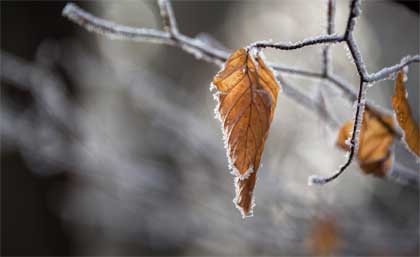
Here are a couple things you will want to do to get your air conditioner ready for a long, cold winter.
- Make sure you clear any leaves or debris away from your outdoor equipment. When it comes to the efficiency and longevity of your heating and air conditioning equipment, airflow is key. Restricted airflow can cause many problems such as decreased system lifespan, increased utility bills and decreased comfort during the summer. Clearing autumn leaves and debris away from your air conditioner before the start of winter can make the process of turning your air conditioner back on during the spring simpler.
- If you noticed issues with your air conditioner during the cooling season, consider replacing your equipment during the winter. This way you won’t spend days during the hotter months without your air conditioner. Just make sure you have your contractor come out before the start of the cooling season to make sure your system is properly charged.
While you’re preparing for winter, don’t forget to give us a call for preventative maintenance. This will ensure that your heating equipment is ready to tackle the cold weather.
Are looking for HVAC Contractor for Heating and Air Conditioner Repairing, installation and maintenance Services in North Carolina? EnviroAirNC is one of the trusted HVAC Contractor offering fair price guaranty, our team experts are qualified, certified and having experience of all brand heating and air conditioner repairing, installation and maintenance.
For more details call us today on 1-919-375-4139, 1-855-420-2665 visit us at https://enviroairnc.com
Modern air conditioners dehumidify as they cool; you can see that by the water that drains away, but this dehumidification is incidental to their main job of controlling temperature. They cannot independently control both temperature and humidity.
| What is Air Conditioning? The first functional definition of air-conditioning was created in 1908 and is credited to G. B. Wilson. It is the definition that Willis Carrier, the “father of air conditioning” subscribed to:
|
